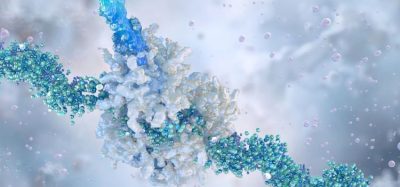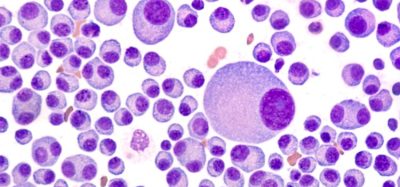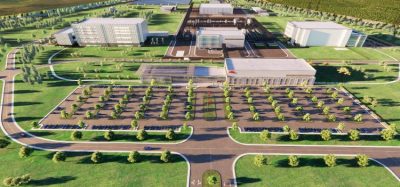The Nagoya Protocol: sharing the benefits of pharmaceutical products and protecting biodiversity
Posted: 12 August 2019 | Dr Rob Yarlett | No comments yet
Researchers use the Earth’s biodiversity for pharmaceuticals, but this is under threat due to climate change and habitat destruction. The Nagoya Protocol aims to conserve these resources in a sustainable way.
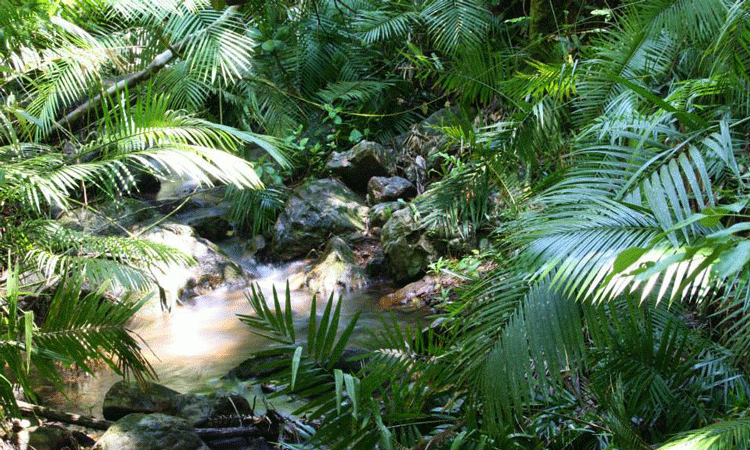

Credit: Rob Yarlett
Biodiversity has long provided benefits to human health and society. Our predecessors learnt to recognise plants, animals, fungi and other organisms that can benefit human health, as well as those that cause harm; primarily through trial and error. Today, traditional medicines have been replaced with pharmaceuticals in many parts of the world, wherein natural products have been extracted and manufactured into drugs, creams and vaccines to treat all manner of conditions.1
Despite a shift to combinatorial chemistry in the late 20th and early 21st century, biodiversity remains a vast, largely unexplored, resource of natural products of potential value.2 Researchers around the world continue to search the planet’s biodiversity for pharmaceutical and cosmetic potential; including pursuits for solutions to some of society’s most pressing issues, such as antimicrobial resistance.
Combinatorial chemistry
Biodiversity hotspots, especially those in the tropics, are some of the environments at greatest risk of adverse impact from humans
A key factor in the shift to combinatorial chemistry was the time and cost involved in bioprospecting novel compounds.2 Over time, the number of novel compounds discovered through bioprospecting began to plateau and the same compounds were re-discovered time and again in multiple phyla, making bioprospecting undesirable for the effort required. Today, the chance of finding a new natural product of potential value from random plant screening is approximately 1 in 10,000.2 If bioprospecting for natural products were to continue, as it does today, it would require a more focused approach, such as utilising the traditional knowledge of indigenous communities. Research has shown that where traditional knowledge is utilised, the chance of success in finding novel plant compounds increases to approximately 1 in 100.2
Unfortunately, our planet’s biodiversity is under threat from human induced habitat degradation and climate change. Biodiversity hotspots, especially those in the tropics, are some of the environments at greatest risk of adverse impact from humans.2-5 We risk losing these natural resources before their potential has even been discovered.
Nagoya Protocol
In recognition of the importance and value of biodiversity to human society, the Convention on Biological Diversity (CBD) came into effect in 1993 with three main objectives: to conserve biodiversity; to ensure the sustainable use of biodiversity; and to ensure the fair and equitable sharing of benefits arising from the utilisation of genetic resources. To supplement this third objective, the Nagoya Protocol on Access to Genetic Resources and the Fair and Equitable Sharing of Benefits Arising from their Utilisation, or ‘Nagoya Protocol’ for short, came into force in October 2014.
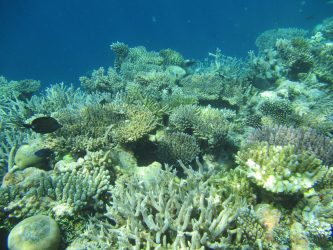

Credit: Rob Yarlett
Here, genetic resources are defined as plants, animals, microbes or other origin (but not human) of potential or actual value and utilisation is defined as research and development.6 The Nagoya Protocol aims to provide more predictable conditions for access to genetic resources and associated traditional knowledge, help to ensure the sharing of benefits arising from their utilisation and promote initiatives to conserve biodiversity. One hundred and seventeen countries are party to the Nagoya Protocol at the time of writing (August 2019), with more countries ratifying every year.
EU regulation
In the EU, compliance measures for the Nagoya Protocol are contained in EU Regulation No 511/2014 .7 This legislation requires those conducting research and development on genetic resources or associated traditional knowledge to exercise due diligence and comply with Access and Benefit Sharing (ABS) legislation in the provider country. The EU legislation is triggered when the provider country is party to the Nagoya Protocol and has access legislation in place for genetic resources that are not already governed by specialised international instruments (such as the Pandemic Influenza Preparedness Framework). The aim of access legislation is to ensure that the conservation and sustainable use of biodiversity is considered prior to access and to prevent unfair exploitation of a country’s genetic resources or traditional knowledge. It is important to remember that even if a genetic resource does not fall within the scope of the EU regulation, the provider country may still have ABS legislation that the user must comply with.
…biodiversity remains a vast, largely unexplored, resource of natural products of potential value
In the pharmaceutical industry, there may be a supply chain from original collection, research, ingredient production and product development through to commercialisation. While ABS obligations in the EU apply to the stage of research and development, there may be terms of use and benefit-sharing agreements that were negotiated with the provider country at the time of access that are relevant throughout this supply chain. It is therefore important that users transfer any ABS documentation associated with a genetic resource and/or traditional knowledge along the supply chain, so that subsequent users are aware of the terms under which the genetic resource was accessed. Any intended changes of use must be re-negotiated with the provider country.
Details of ABS legislation in different countries can be found on the ABS Clearing House,8 which also lists the key in-country contact points. Contacting the National Focal Point (NFP) is typically recommended to ensure users have the most up-to-date information.
Conclusion
The Departments for Environment, Food and Rural Affairs (DEFRA) and Business Energy and Industrial Strategy (BEIS) are responsible for implementing the Nagoya Protocol in the UK. The Office for Product Safety and Standards (OPSS), part of BEIS, acts as the Competent National Authority (CNA) and works directly with business, research organisations and other institutions to support understanding and compliance.
For more information, visit www.gov.uk/abs.
About the author
Dr Rob Yarlett is a Senior Enforcement Officer at the Office for Product Safety and Standards (OPSS), part of the UK Government’s Department for Business, Energy and Industrial Strategy (BEIS) and the UK’s competent authority for ABS. Rob is a marine scientist and holds a PhD in Marine Ecology from the University of Exeter.
References
- Pushpangadan P, Ijinu TP, Dan VM, George V. Trends in bioprospecting of biodiversity in new drug design. Pleione. 2015;9(2): 267-282.
- Dias DA, Urban S, Roessner U. A Historical Overview of Natural Products in Drug Discovery. Metabolites. 2012;2: 303-336.
- Pushpangadan P, George V, Ijinu TP, Chithra MA. Biodiversity, Bioprospecting, Traditional Knowledge, Sustainable Development and Value Added Products: A Review. Journal of Traditional Medicine & Clinical Naturopathy. 2018;7: 256 Available from: doi: 10.4172/2573-4555.1000256.
- Bhatia P, Chugh A. Role of marine bioprospecting contracts in developing access and benefit sharing mechanism for marine traditional knowledge holders in the pharmaceutical industry. Global Ecology and Conservation. 2015;3: 176-187.
- Wynberg R. Marine Genetic Resources and Bioprospecting in the Western Indian Ocean. In: Paula J. (ed.) Regional State of the Coast Report: Western Indian Ocean. Nairobi, Kenya: United Nations Environment Programme/Nairobi Convention Secretariat; 2015 p.407- 416.
- Convention on Biological Diversity. Text of the Nagoya Protocol. Available from: https://www.cbd.int/abs/text/ [Accessed 10th July 2019]
- Eur-Lex. Regulation (EU) No 511/2014 of the European Parliament and of the Council of 16 April 2014 on compliance measures for users from the Nagoya Protocol on Access to Genetic Resources and the Fair and Equitable Sharing of Benefits Arising from their Utilization in the Union Text with EEA relevance. Available from: https://eur-lex.europa.eu/legal-content/EN/TXT/?uri=CELEX%3A32014R0511 [Accessed 17th May 2019].
- The Access and Benefit Sharing Clearing House. Available from: https://absch.cbd.int/ [Accessed 17th May 2019].
Related topics
Drug Manufacturing, Formulation, Ingredients, Research & Development (R&D), Sustainability





